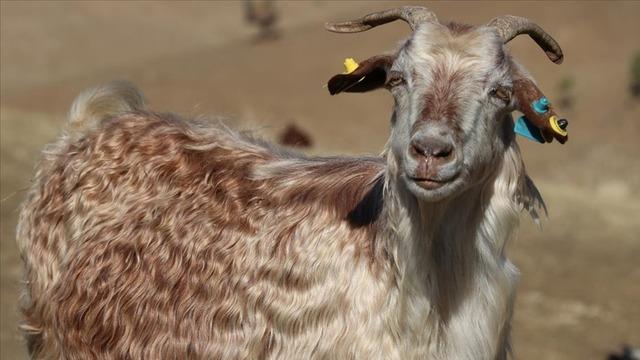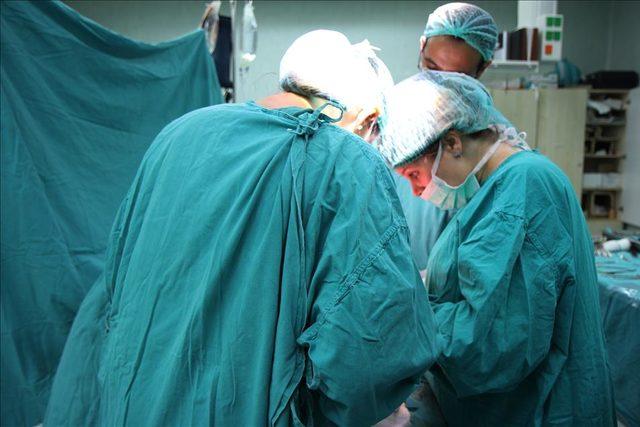BBC Latin American Service
In 1917, a farmer in the US state of Kansas knocked on the door of a doctor named John Brinkley due to his sexual reluctance and impotence problems.
The farmer said that he spent a lot of money going from doctor to doctor in despair but could not find a solution.
Doctor Brinkley said that he had encountered many similar cases and said, “I used serums, drugs and electricity on many male patients experiencing sexual weakness, but none of them helped. “Medical science knows nothing about what will help in situations like this,” he said.
While looking out the window, Brinkley saw the goats wandering around and said with humor, “If you were a male goat, you wouldn’t have such problems!” he said.
The desperate farmer said, “What if I had the goat’s testicles? ” He replied and said, “Then transfer the goat testicles to me.”
To the doctor who warned him, “This could kill you,” he replied, “It’s worth taking the risk.”
This dialogue is described differently in different sources and is difficult to verify, as some parts of it may be urban legend.
However, even though it is hard to believe, these things are real.
Who is John R. Brinkley?
The name of the doctor in the leading role of the story is John R. Brinkley.
Brinkley wrote to the town where the pharmacy where he saw this farmer and his other patients was located, “Milford, Kansas, population 2000. He saw the advertisement that said “We are looking for a doctor” and moved.
He later realized that there was a typo in the ad and that the town’s population was actually just 200.
The roads were bad and there was no transportation. It was a modest town with no water, sewage or even electrical systems.
But he only had $23 in his pocket and a lot of debt.
In 1913, he and a partner established a business in South Carolina where they treated male patients with energy and aversion problems.
However, when it was revealed that they were operating without a license and using fake checks, the business was closed two months later and they found themselves in jail.
Two years later, Brinkley, who worked briefly as a doctor at a facility where meat was slaughtered and packaged, was very impressed when he saw how the goats there were mating enthusiastically.
In fact, Brinkley wanted to be a doctor from an early age, and when he had the opportunity, he enrolled in universities to complete his medical education.
When he arrived in Milford, he had a medical degree, though of dubious origin, that allowed him to practice medicine in eight states.
He soon became famous for his treatments during the deadly flu epidemic of 1917-1918.
The visit of Farmer’s patient and the dialogue between them led to a surprising change in Brinkley’s career.

secret surgery
Let’s go back to his conversations with the farmer.
Brinkley’s mention of goat testicles raised the farmer’s hopes.
In those years, the idea of removing all or part of the organs from animals and transplanting them to humans for therapeutic purposes was not new at all, and mainstream physicians were following these issues with interest.
But even the idea of such a process was absurd.
Brinkley and the farmer still got together and made detailed planning.
They also agreed to keep this operation secret.
That night the farmer would bring the goat and return home before sunrise, in the dark.
The farmer’s wife called the doctor the next day and said that her husband had the flu. Their goal was to find an excuse to justify Brinkley’s follow-up of the patient after this unusual surgery.
According to an autobiographical book written by Clement Wood in 1937, which Brinkley is thought to have dictated himself, the farmer who came to visit the doctor two weeks after the procedure gave him a check for $150. According to the book, the farmer was so happy with the result that he said, “If it were possible, I would pay 10 times that money.”
No matter how secretive the duo kept it, rumors spread and another man secretly went to Brinkley and asked for the same treatment.
This man named William Stittsworth was so pleased with the treatment that he asked his wife to transplant the goat’s ovary.
Stittsworth’s wife soon became pregnant, and the couple named their baby boy Billy, inspired by the English word “Billy goat”.

As we mentioned before, it is possible that some parts of the story are urban legends.
Let’s face it, although it was possible that Brinkley could replace the organs of his patients with goats, it was not possible for them to have children with these organs.
On the other hand, what happened spread by word of mouth and found a place in both the media and books.
Even though it touches on a taboo subject like sexual impotence.
Brinkley offered a kind of “elixir of youth” to patients whose lives were ruined due to sexual dysfunction.
Brinkley made a fortune as many patients received positive results.
He expanded the business with the support of important people such as JJ Tobias, dean of the University of Chicago Law School.
“I was exhausted,” said JJ Tobias, who went to Milford and had surgery at Brinkley’s clinic. I was an old man. My headaches went away 4 days after the operation. “I left the hospital 7 days later feeling 25 years younger,” he wrote.
In short, it was claimed to cure not only impotence but also problems such as dementia and flatulence caused by old age.

Lots of words, little evidence
While much has been written about the success of these treatments, little is known about what works and how.
In her book on Brinkley’s treatments, published in 1921, author Sydney B. Flower stated that Brinkley “made two incisions in the man’s testicles with local anesthesia while transplanting the glands in the animal.”
Flower explained in the book:
“Brinkley’s techniques varied depending on the circumstances of the case. That’s why Brinkley explained that no matter how hard he tried to teach his colleagues what to do and how to do it, he could not recommend in writing a treatment that would cover all cases.”
Despite the uncertainties, articles about Brinkley’s goat organ transplant were proliferating.
Brinkley wrote in his own book published in 1922:
“Today, I am announcing to the whole world without beating around the bush: The right method has been found. “Day by day, I transplant animal glands into people’s bodies, and they continue to work as living tissues in the human body.”
Harry Chandler, owner of the Los Angeles Times and the city’s first radio station, was impressed by what he read and invited Brinkley to California. He ensured that the doctor was granted a temporary license to operate in this state.

The complaints of dissatisfied patients were featured in the newspaper called the Kansas City Star.
But nothing could stop Dr. Brinkley’s fame and success.
The person who would defeat Brinkley was Morris Fishbein, one of the richest men in the USA and the editor of the Journal of the American Medical Association, known as a complete “quack hunter”.
Brinkley, whom Fishbein accused of enriching himself by victimizing people on his radio show, responded to this on his own radio channel:
He said that for every dissatisfied patient the newspapers and the American Journal of Medicine found, they would show 10 happy patients who were satisfied with the treatment.
In 1930, the Kansas Board of Health did not revoke Brinkley’s license, accusing him of immorality and unprofessionalism. The license of the radio channel was also cancelled.
But the story didn’t end there.
He entered politics and fled to Mexico
Many people in Kansas still liked and trusted the doctor whose license had been stripped.
Some have called for him to run for governor.
He actually ran as an independent. He couldn’t win the elections, but we can’t say he lost either.
Since he joined the race very late, his name was not on the ballot papers, so many people tried to vote for him by handwriting his name on the ballot.
Brinkley received the majority of the votes, but 50 thousand votes from people who misspelled his name were deemed invalid and he did not win the election.
Meanwhile, he received an invitation from Mexico to establish his own radio station.
Brinkley’s radio station was the most powerful in the world, being 10 times more powerful (500 thousand watts) than the most powerful radio station licensed in the United States.
In his programs, he could cover some topics in the fields of health, sex, music and religion that US radio stations could not broadcast but that were of interest to the listeners.
Thus, Brinkley became one of the most important pioneers of radio stations that could broadcast to another country without a license.
No one could stop his fame and fortune, and despite all efforts, he was able to practice medicine in a few states. Thanks to Mexico, there is no obstacle to making his voice heard.
What brought Brinkley his undoing was his own arrogance.

Brinkley’s image suffered a major blow in 1938 when Fishbein accused him of being a “malicious fraudster.”
Former patients filed lawsuits against Brinkley.
Brinkley filed a defamation lawsuit against Fishbein, but former patients took the stand while the lawsuit was being heard and said Brinkley had caused them financial and physical harm.
Evidence was presented that 42 men died on the operating table.
Patients demanded millions of dollars in damages.
The court ruled in favor of Fishbein, and Brinkley, whose image took a hit, went bankrupt in 1941. The man, whose health deteriorated due to the accusations, died a year later at the age of 56.
